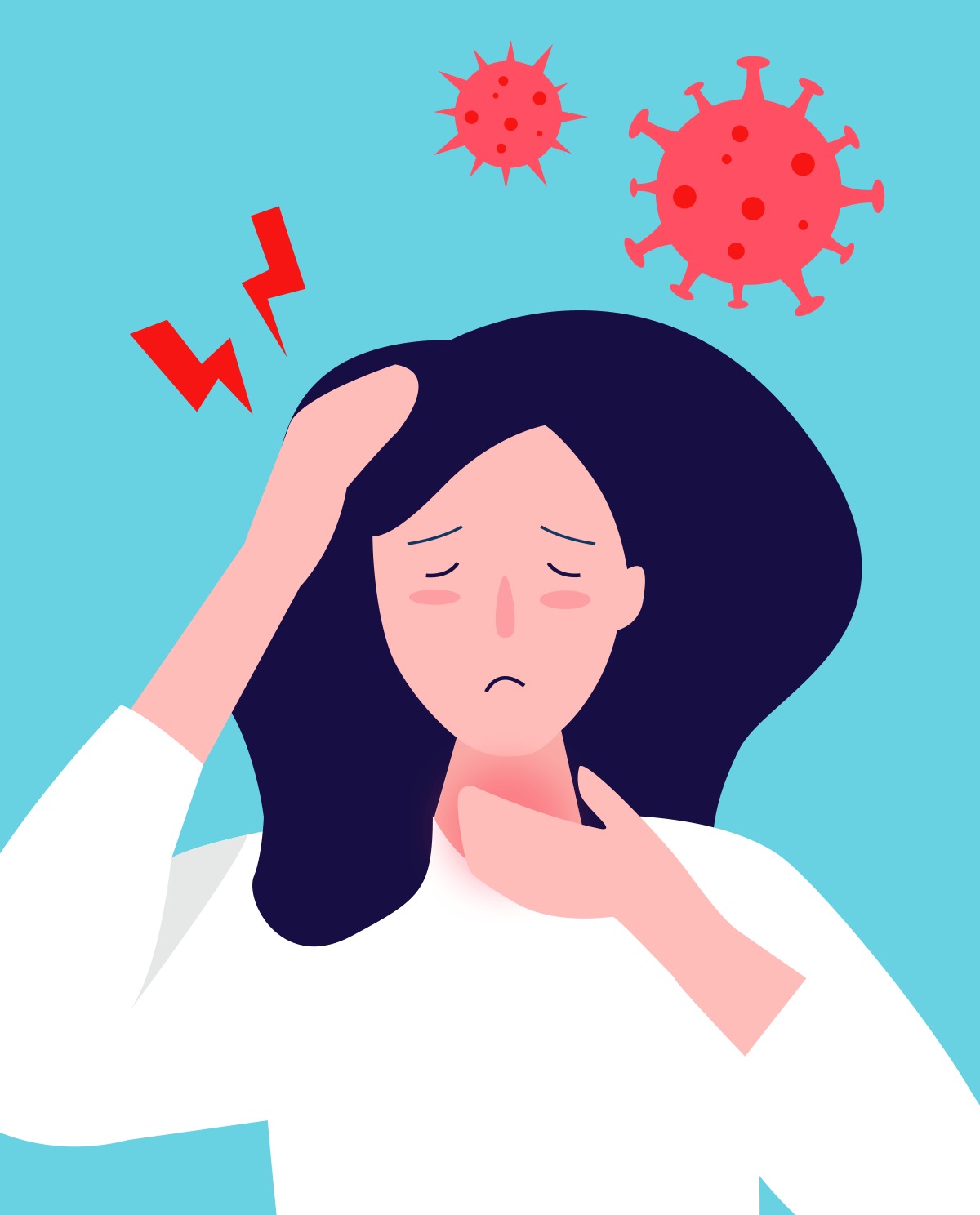ST6. What Are Sudden Unexplained Symptoms?
Sudden Unexplained Symptoms: What You Need to Know
Life often catches us off guard, and few things are as unsettling as experiencing sudden, unexplained symptoms. Whether it’s a sudden headache, unexplained fatigue, dizziness, or other symptoms that seem to come out of nowhere, the uncertainty can be distressing. Understanding the potential causes, knowing when to seek medical attention, and learning how to manage these symptoms is essential for peace of mind and good health. 
Sudden unexplained symptoms refer to any physical, mental, or emotional changes in the body that occur abruptly and without an identifiable cause. Common examples include:
- Sudden onset of pain: Such as a headache, chest pain, or abdominal discomfort.
- Dizziness or fainting: Feeling lightheaded or losing consciousness.
- Nausea and vomiting: Without prior illness or dietary triggers.
- Unexplained fatigue: Overwhelming tiredness without any apparent reason.
- Skin rashes or hives: Appearing spontaneously.
- Neurological symptoms: Numbness, tingling, or difficulty speaking.
While some symptoms may be harmless and temporary, others could indicate a serious underlying condition requiring immediate attention.

Common Causes of Sudden Unexplained Symptoms
Understanding the potential causes of sudden symptoms can help narrow down the possibilities:
- Stress and Anxiety
Emotional distress often manifests physically. Sudden heart palpitations, shortness of breath, and dizziness could be signs of anxiety or a panic attack. - Allergic Reactions
Exposure to allergens, even those not previously encountered, can cause hives, swelling, or difficulty breathing. Severe cases may lead to anaphylaxis, a life-threatening condition. - Infections
Some infections, such as viral or bacterial illnesses, can present with sudden fever, fatigue, or localized pain. Infections like meningitis or sepsis require urgent care. - Neurological Disorders
Conditions like migraines, strokes, or transient ischemic attacks (TIAs) often have abrupt symptoms, such as intense headache, slurred speech, or weakness on one side of the body. - Heart-Related Issues
Chest pain, breathlessness, or fainting can be indicative of a heart attack, arrhythmia, or other cardiac concerns. - Metabolic Imbalances
Sudden changes in blood sugar, dehydration, or electrolyte imbalances can cause confusion, dizziness, or muscle cramps. - Medication Side Effects
New medications or interactions between existing prescriptions can result in unexpected symptoms. - Toxins or Environmental Factors
Exposure to toxic substances or extreme environmental conditions, like heatstroke, can lead to sudden unexplained symptoms.

When to Seek Medical Attention
It’s crucial to recognize when sudden unexplained symptoms warrant professional evaluation. Seek immediate medical help if you experience:
- Severe or persistent pain
- Difficulty breathing
- Sudden weakness or numbness on one side of the body
- Confusion or altered mental state
- Chest pain that radiates to the jaw, arm, or back
- Uncontrollable bleeding or swelling
- High fever accompanied by a stiff neck or severe headache
Timely intervention can be life-saving in critical situations such as strokes, heart attacks, or severe allergic reactions.
Managing Sudden Unexplained Symptoms
If your symptoms are mild or not immediately alarming, here are steps to manage them:
- Stay Calm
Panicking can exacerbate symptoms, especially if they stem from anxiety. Take deep breaths and focus on relaxing. - Track Your Symptoms
Write down what you’re experiencing, including when the symptoms began and any potential triggers. This information can help healthcare providers diagnose the issue. - Hydrate and Rest
Dehydration and fatigue can worsen many symptoms. Drink water and rest in a comfortable position. - Avoid Self-Medication
While over-the-counter remedies may provide temporary relief, avoid taking medications without understanding the root cause. - Consult a Healthcare Provider
If symptoms persist or worsen, schedule an appointment with a doctor for a comprehensive evaluation.
Prevention Tips
While not all sudden symptoms can be prevented, adopting a healthy lifestyle can reduce the risk of many underlying conditions:
- Eat a Balanced Diet: Nutritious food supports overall health and reduces the risk of deficiencies or imbalances.
- Exercise Regularly: Physical activity enhances cardiovascular health and mental well-being.
- Stay Hydrated: Proper hydration is vital for body function and can prevent symptoms like dizziness or fatigue.
- Manage Stress: Practice mindfulness, meditation, or other relaxation techniques.
- Be Aware of Allergies: Know your triggers and carry necessary medications, such as an epinephrine auto-injector.
- Get Regular Checkups: Routine health screenings can catch potential issues early.
Misconceptions About Sudden Symptoms
- “It’s Nothing to Worry About”
Some individuals dismiss symptoms, believing they’ll resolve on their own. While this might be true for minor issues, ignoring serious signs can delay critical treatment. - “I’m Too Young to Be at Risk”
Health problems like strokes or heart attacks can occur at any age, especially with underlying risk factors. - “I Can Diagnose Myself Online”
While online resources are helpful for education, they can’t replace professional medical advice. Self-diagnosis can lead to unnecessary worry or overlooked conditions.
Why Sudden Symptoms Shouldn’t Be Ignored
Sudden unexplained symptoms often act as the body’s warning system, signaling that something might be wrong. Ignoring these signs could lead to complications or worsen an underlying condition. For example:
- A sudden severe headache could indicate a brain aneurysm.
- Chest pain might be an early sign of a heart attack.
- Unexplained fatigue could be related to thyroid issues, anemia, or chronic fatigue syndrome.
The Role of Medical Technology
Advancements in medical technology have made it easier to diagnose and manage unexplained symptoms. From wearable health trackers to advanced imaging techniques, patients now have access to tools that can detect issues early.
Additionally, telemedicine services have made it convenient to consult healthcare providers remotely, ensuring quicker responses to concerning symptoms.
Final Thoughts
Sudden unexplained symptoms are a reminder of the body’s complexity. While some instances may be benign, others can point to serious health concerns. By staying informed, monitoring your health, and seeking timely medical advice, you can address these symptoms effectively and protect your well-being.
Remember, your health is your most valuable asset—don’t hesitate to act when something feels off.
FAQs
1. What should I do if I can’t reach a doctor immediately?
If symptoms are severe, call emergency services. For milder cases, track your symptoms and seek care as soon as possible.
2. Can sudden symptoms go away on their own?
Some symptoms may resolve without intervention, but it’s essential to understand the cause to prevent recurrence.
3. Are sudden symptoms always related to serious conditions?
Not always. Many factors, including stress or temporary physical changes, can cause symptoms. However, it’s better to err on the side of caution.
By focusing on awareness, prevention, and timely care, you can navigate the challenges of sudden unexplained symptoms with confidence and control.













